Investment Banking Cover Letter Examples

May 29, 2025
|
12 min read
Creating an investment banking cover letter is your key to success. Discover how to pen your personal 'finance introduction' that opens doors to opportunity and helps your qualifications ring true in the minds of potential employers.
Rated by 348 people
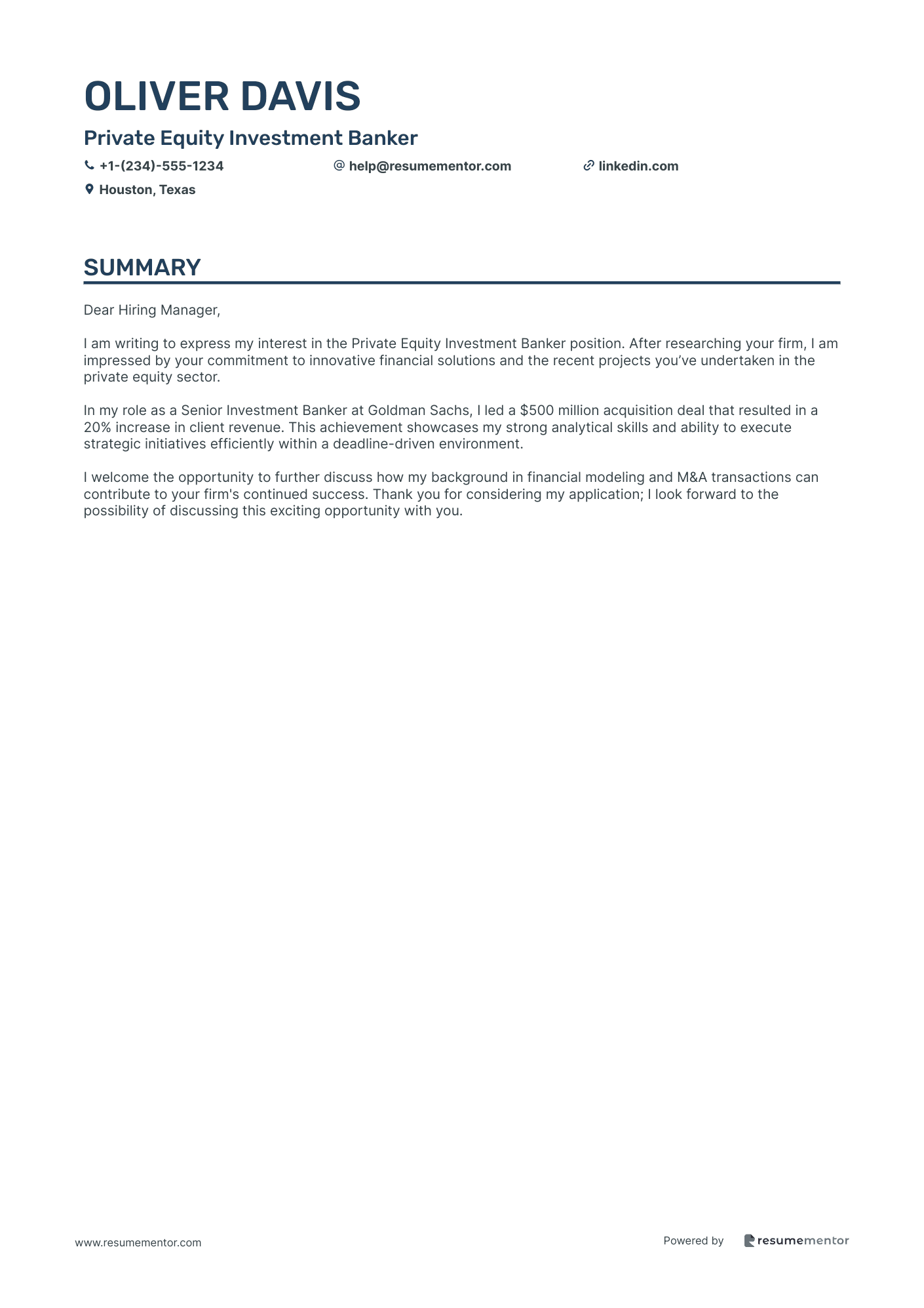
Private Equity Investment Banker
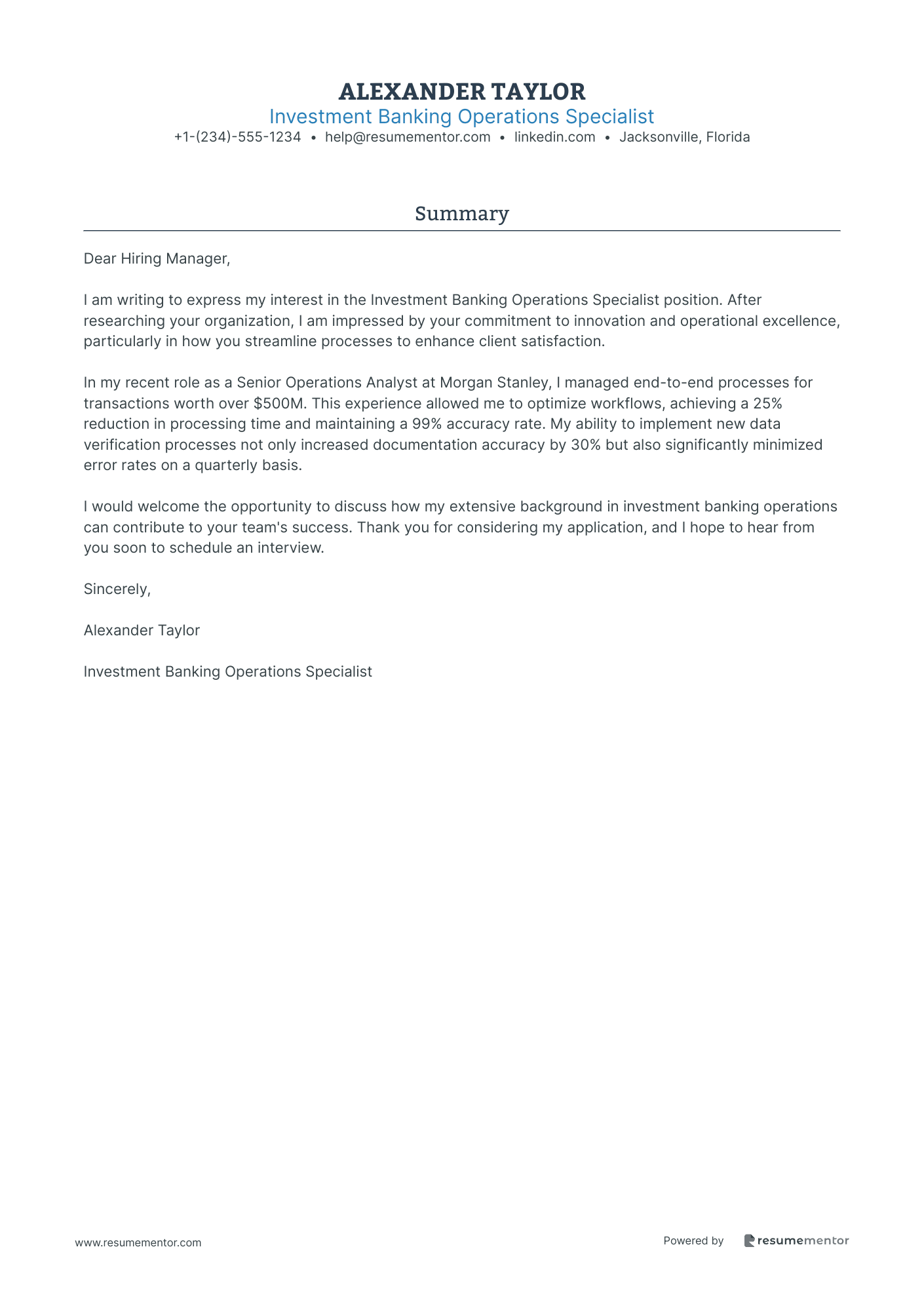
Investment Banking Operations Specialist
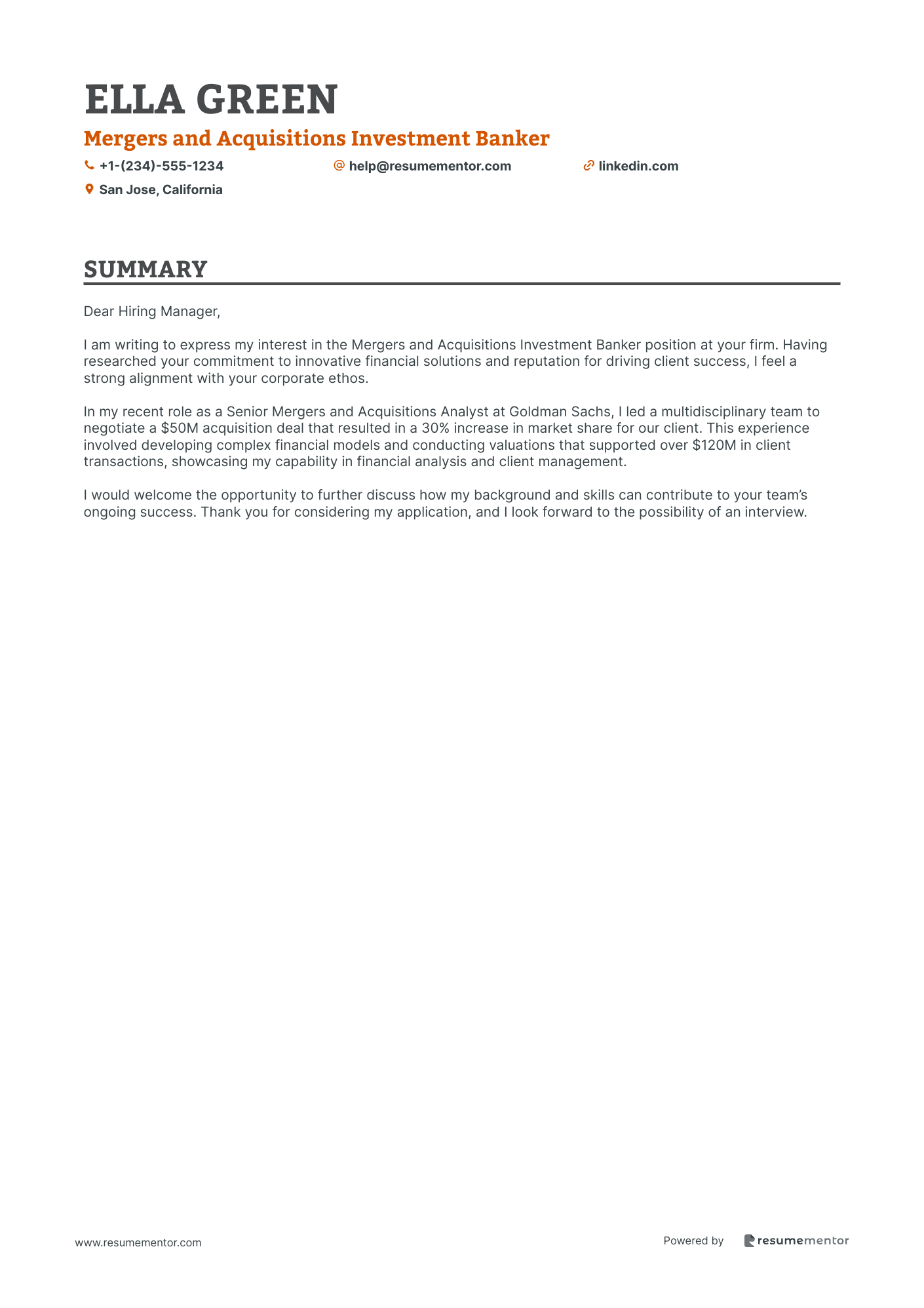
Mergers and Acquisitions Investment Banker
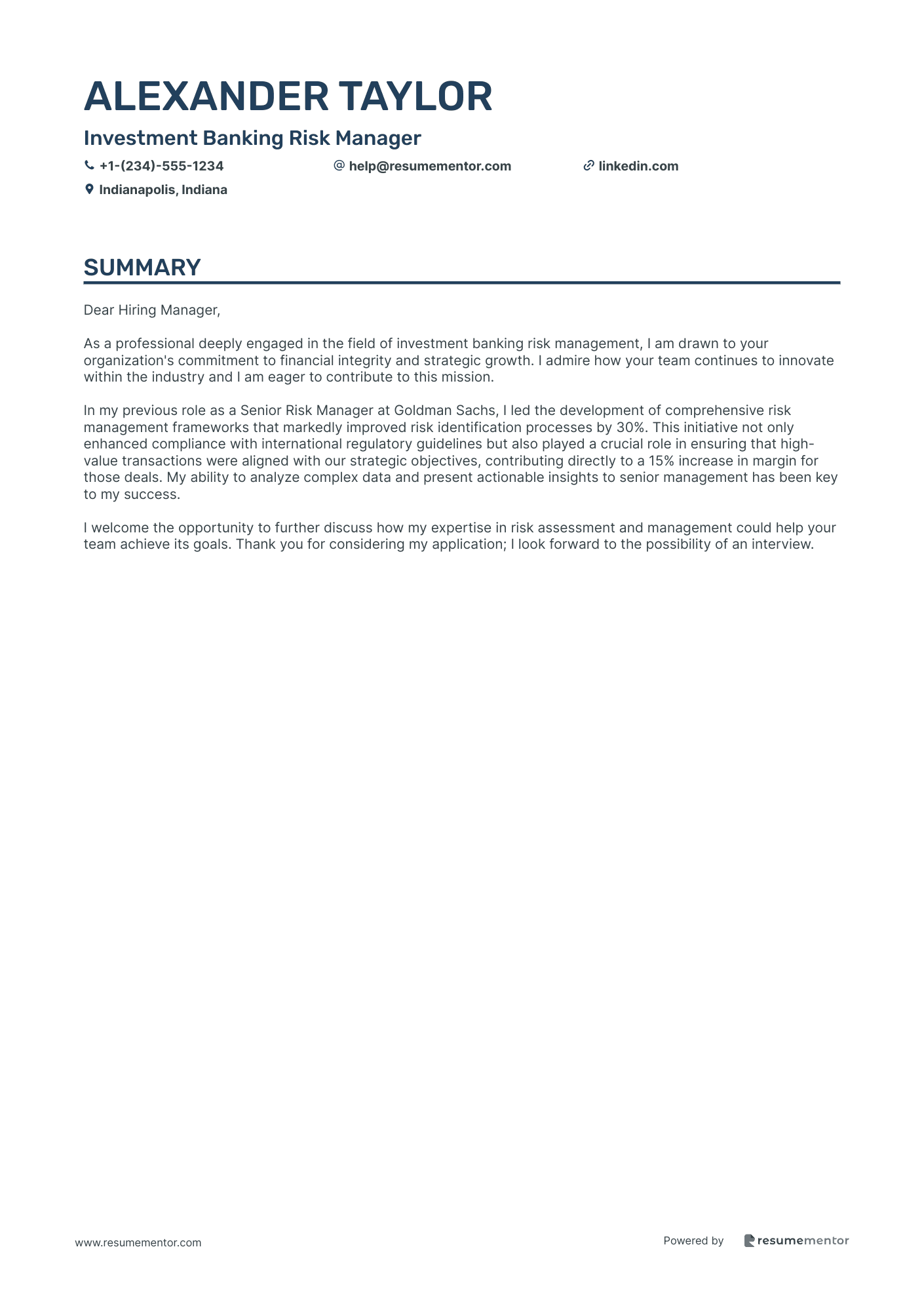
Investment Banking Risk Manager
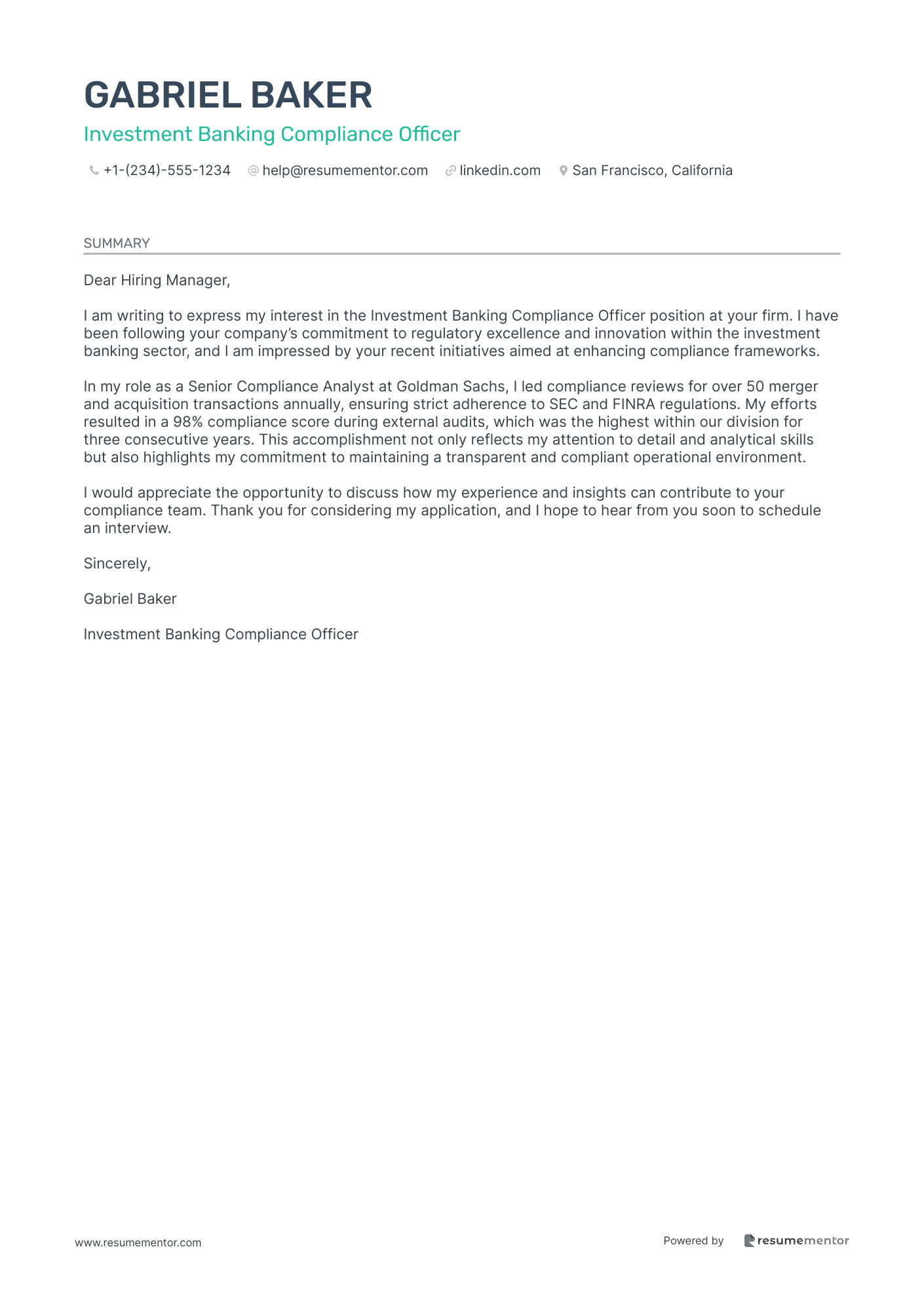
Investment Banking Compliance Officer
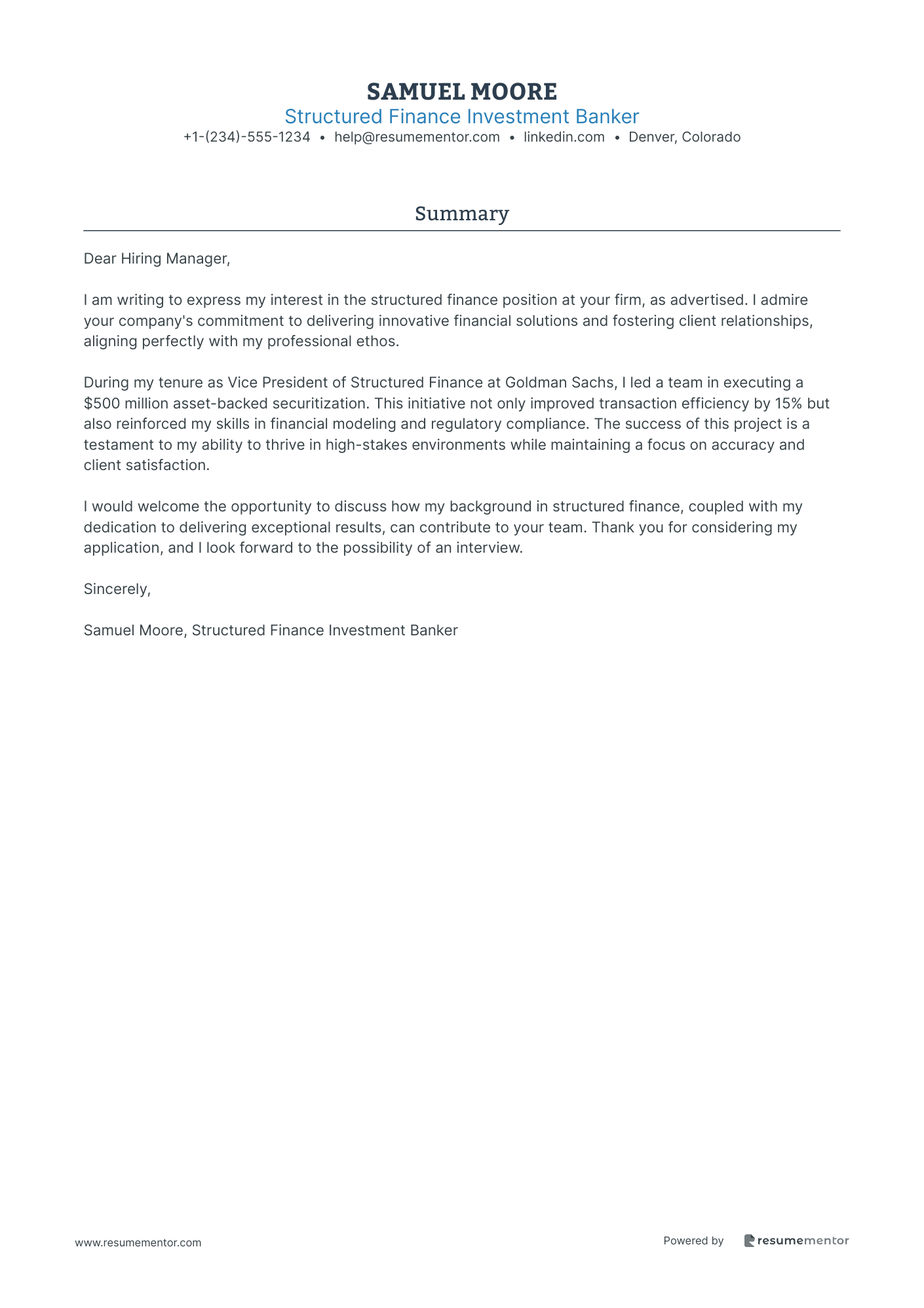
Structured Finance Investment Banker
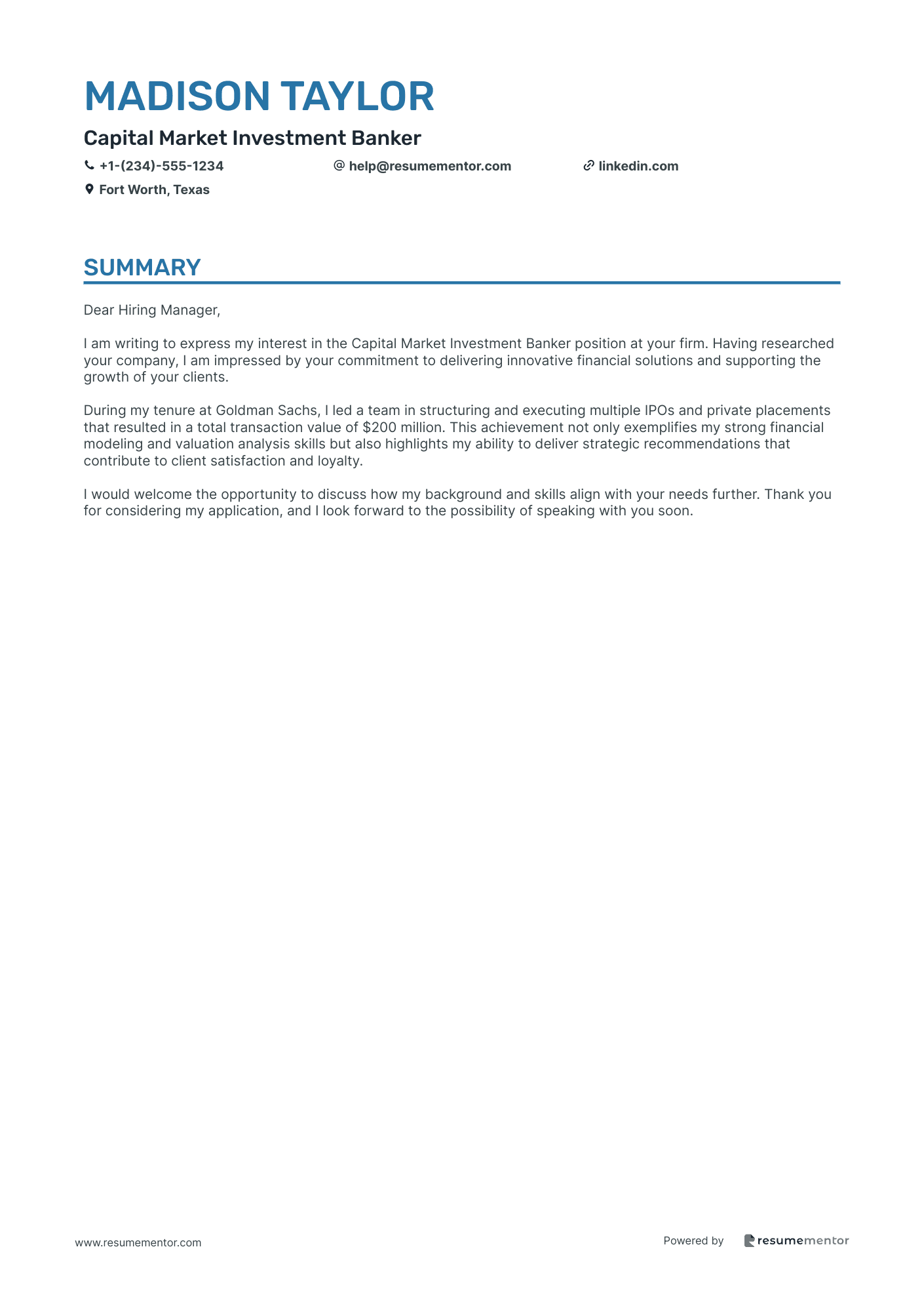
Capital Market Investment Banker
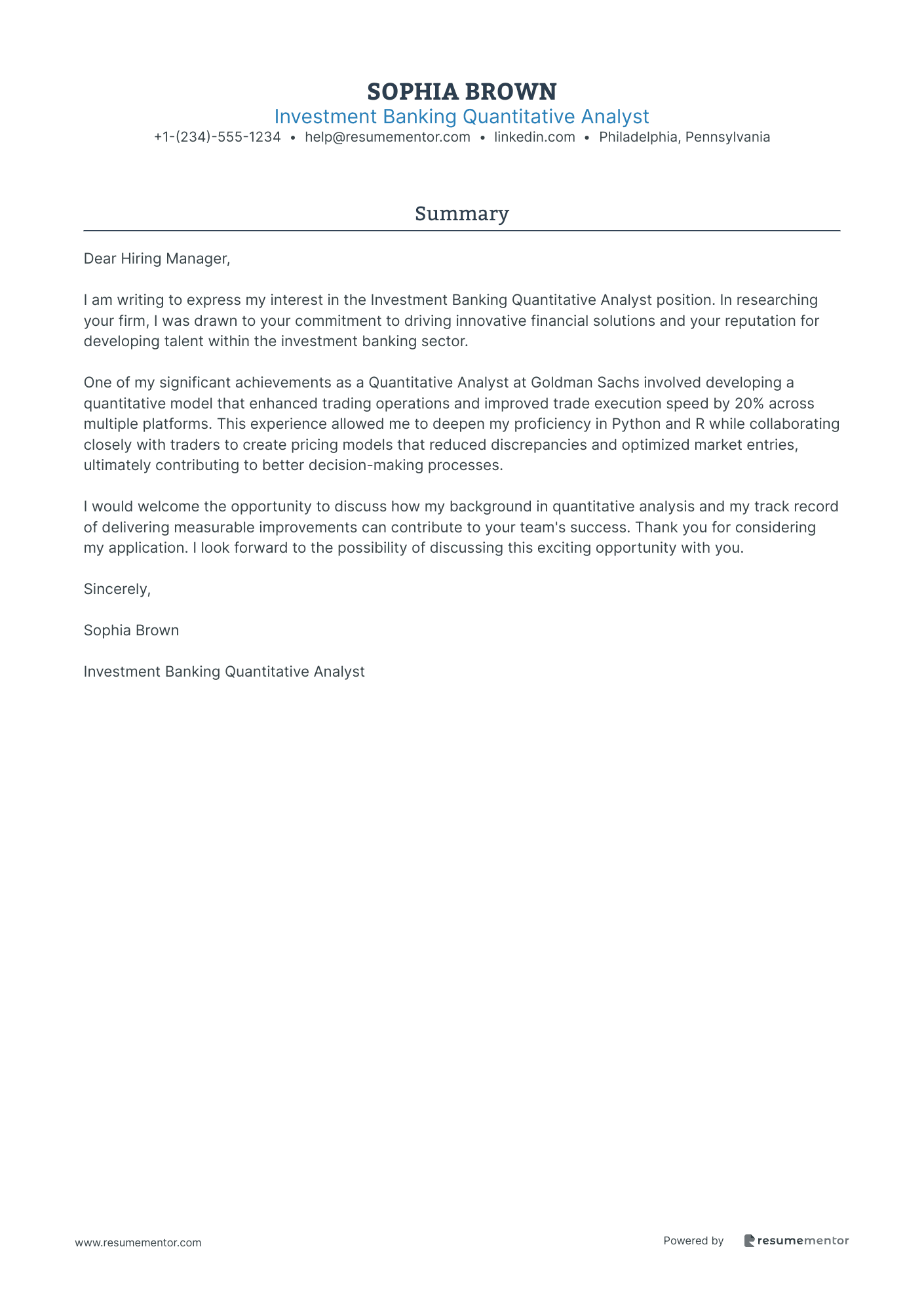
Investment Banking Quantitative Analyst
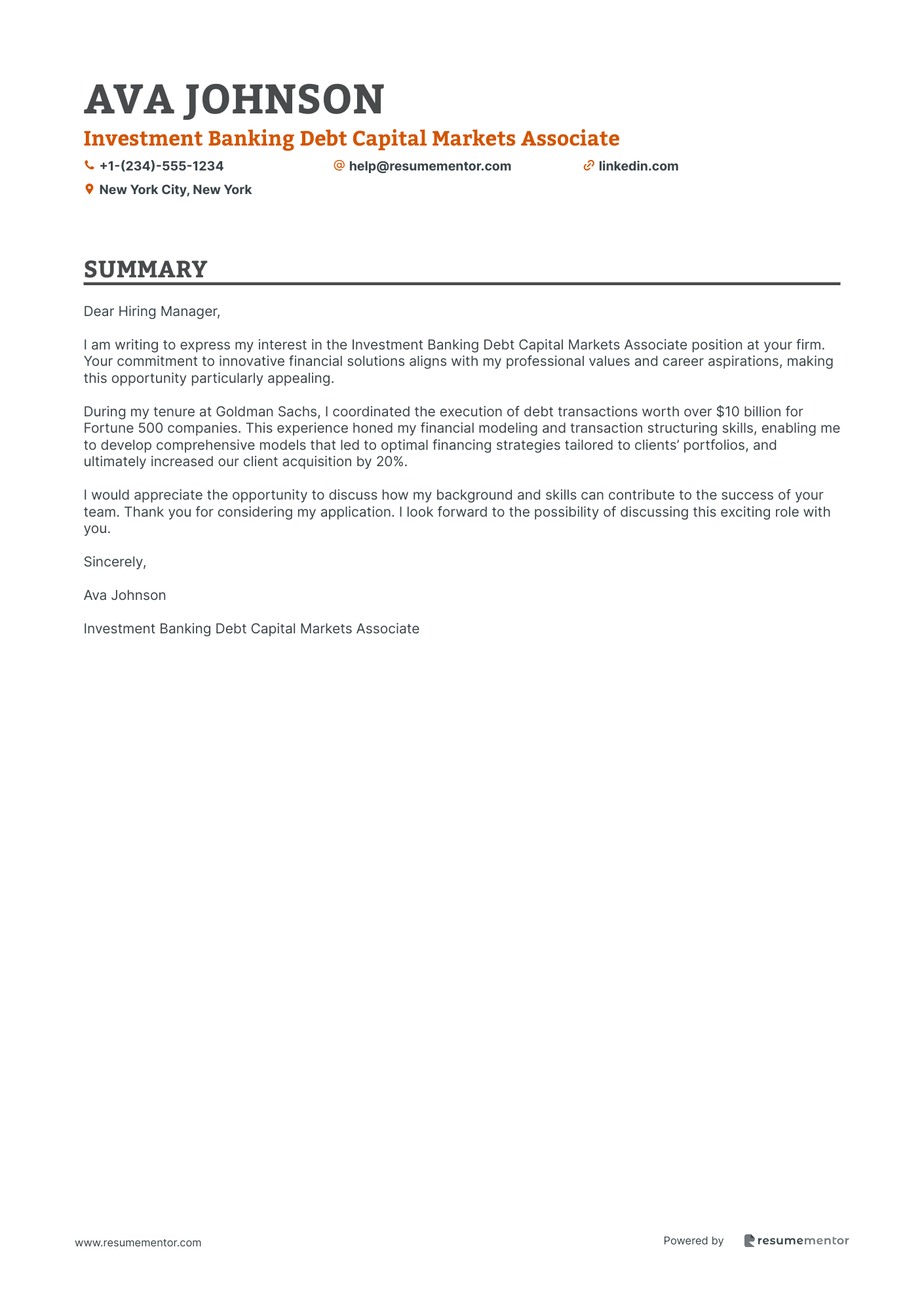
Investment Banking Debt Capital Markets Associate
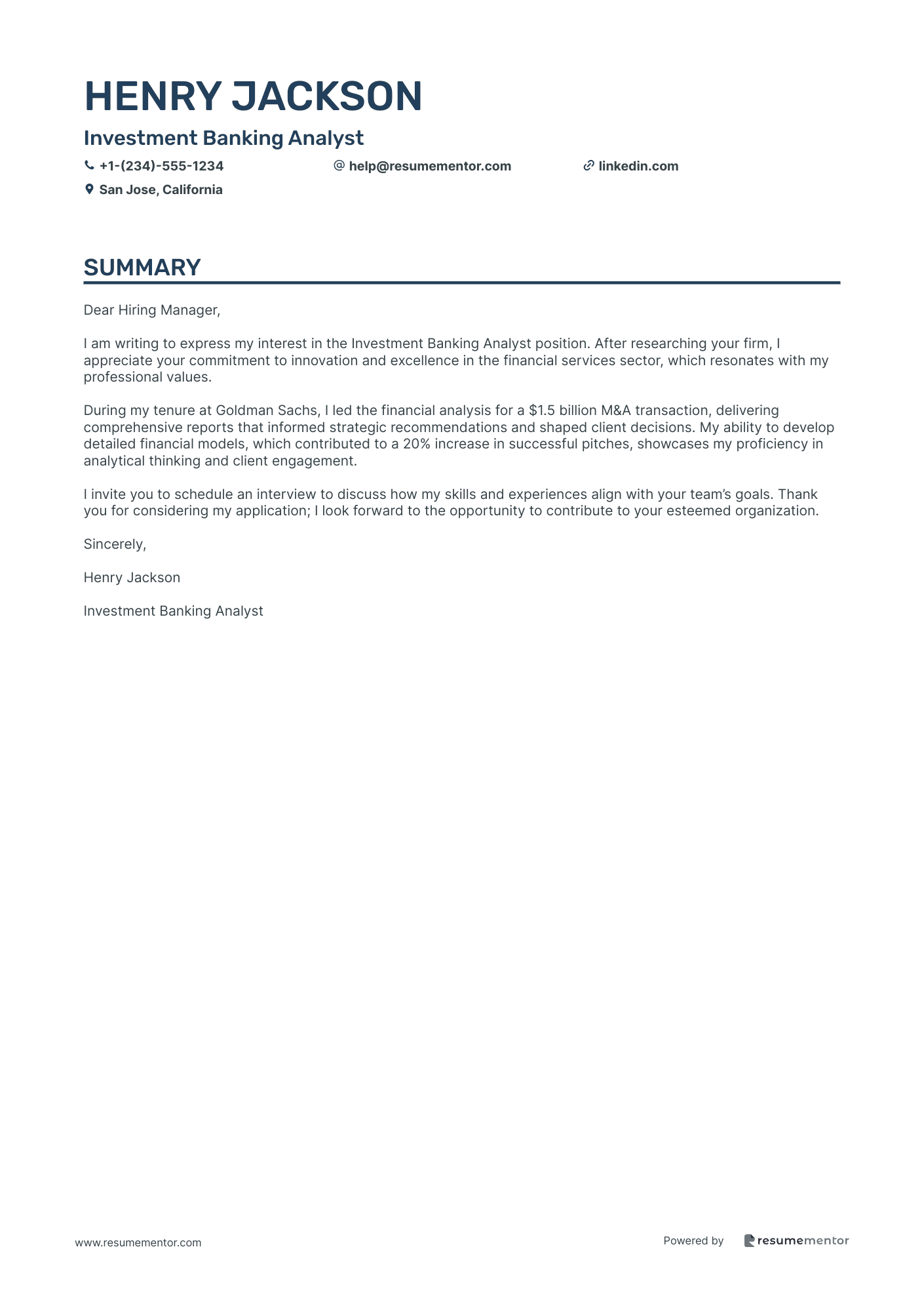
Investment Banking Analyst

Private Equity Investment Banker cover letter sample
Investment Banking Operations Specialist cover letter sample
Mergers and Acquisitions Investment Banker cover letter sample
Investment Banking Risk Manager cover letter sample
Investment Banking Compliance Officer cover letter sample
Structured Finance Investment Banker cover letter sample
Capital Market Investment Banker cover letter sample
Investment Banking Quantitative Analyst cover letter sample
Investment Banking Debt Capital Markets Associate cover letter sample
Investment Banking Analyst cover letter sample
Related Articles

Continue Reading
Check more recommended readings to get the job of your dreams.
Resume
Resources
Tools
© 2026. All rights reserved.
Made with love by people who care.
